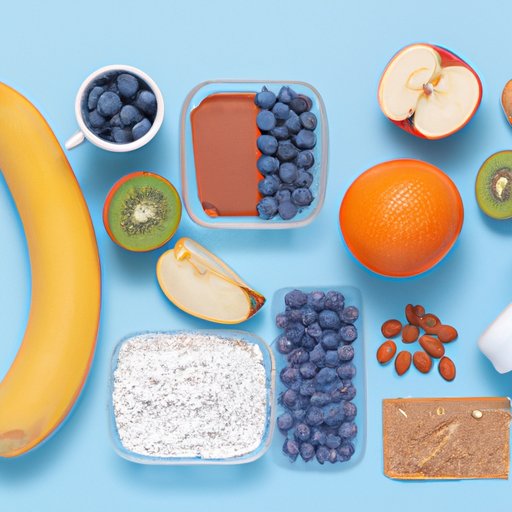
Introduction
It’s a common dilemma for anyone who exercises regularly – do you eat before or after your workout? It can be difficult to know what the best approach is, with many different opinions and theories out there. However, understanding the benefits and drawbacks of both options can help you make an informed decision about how to fuel your body for exercise.
Benefits and drawbacks of eating before exercise
Eating before exercise can provide numerous benefits, such as providing the body with the necessary fuel to power through a workout and reducing the risk of low blood sugar or fainting. However, consuming food before exercising can also have risks and downsides. For example, eating too close to the workout may cause gastrointestinal discomfort or cramping. Additionally, the type and quantity of food consumed can impact performance, with heavy or fatty meals slowing down digestion and negatively impacting energy levels.
Benefits and drawbacks of eating after exercise
Post-workout meals or snacks can also have their advantages, such as replenishing the body’s glycogen stores and aiding in muscle recovery and growth. However, eating after exercising can also have risks and downsides, such as overeating and consuming unnecessary calories that may cancel out the benefits of the workout. Additionally, if the body is not properly hydrated, consuming food after a workout may exacerbate dehydration and lead to cramping or dizziness.

The best foods to eat before exercising to optimize performance
For those who choose to consume food before exercising, there are certain foods that are better than others to optimize performance. Complex carbohydrates such as whole grains, fruit, or vegetables are great choices, as they provide a slow-release source of energy that can sustain the body throughout the workout. Lean protein sources such as grilled chicken, fish, or lentils can also be beneficial for muscle repair and growth. Some examples of nutritious pre-workout meal or snack options include a banana with almond butter, oatmeal with berries and Greek yogurt, or a turkey and avocado wrap.
The best foods to eat after exercising to boost recovery
After exercise, the body needs nutrients to help replenish, repair, and rebuild. In particular, carbohydrates, protein, and fluids are essential to help restore glycogen levels, aid in muscle recovery and growth, and minimize soreness and fatigue. Some examples of nutritious post-workout options include a protein shake with fruit, chocolate milk, almond butter on whole grain toast, or a quinoa and vegetable bowl.
How timing of meals may impact weight loss during exercise
Timing of meals can also impact weight loss during exercise. While exercising on an empty stomach may lead to more fat burning, consuming food before or after exercise can also have a positive effect on weight loss. Eating before a workout can boost energy levels and prevent overeating later in the day, while eating after exercise can help regulate appetite and prevent snacking on unhealthy options. By properly timing meals and combining proper nutrition and exercise, weight loss goals can be more achievable.
The importance of personal trial and error to determine what works best for each individual
It’s important to remember that everyone is different and some trial and error may be necessary to determine the best approach for each individual. Factors such as personal preference, fitness goals, and body composition can all influence the optimal timing and type of food consumed around exercise. Experimenting with different foods, timing, and quantities can help each individual find the approach that works best for them.
Conclusion
In conclusion, whether you eat before or after exercise depends on personal preference and fitness goals. Eating before exercise can provide much-needed fuel and prevent low blood sugar, while consuming food after exercise can aid in recovery and glycogen replenishment. Timing of meals can also impact weight loss, with proper meal timing and nutrition positively impacting fitness goals. By experimenting and finding the approach that works best for your body, you can optimize both workout performance and overall nutrition.




